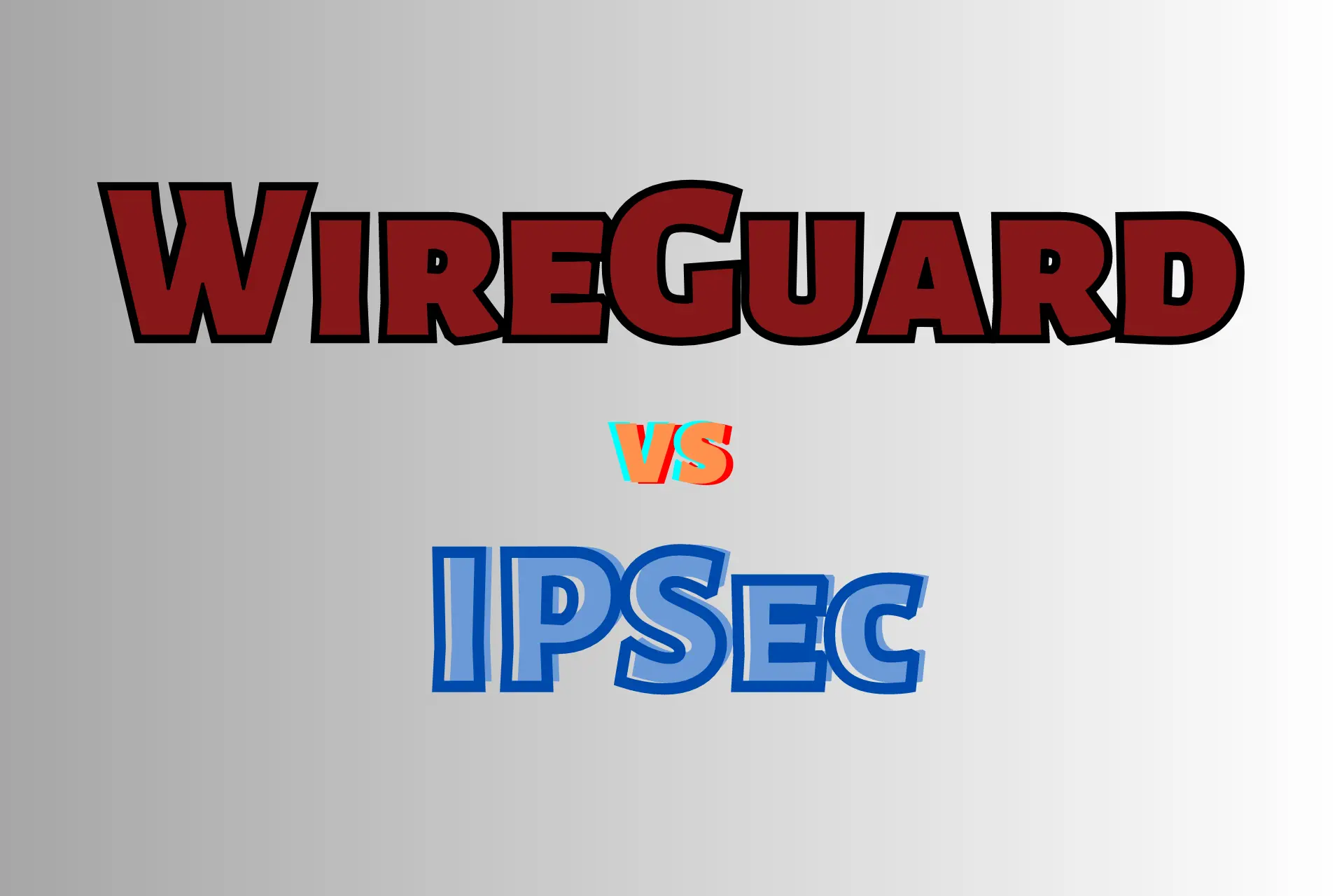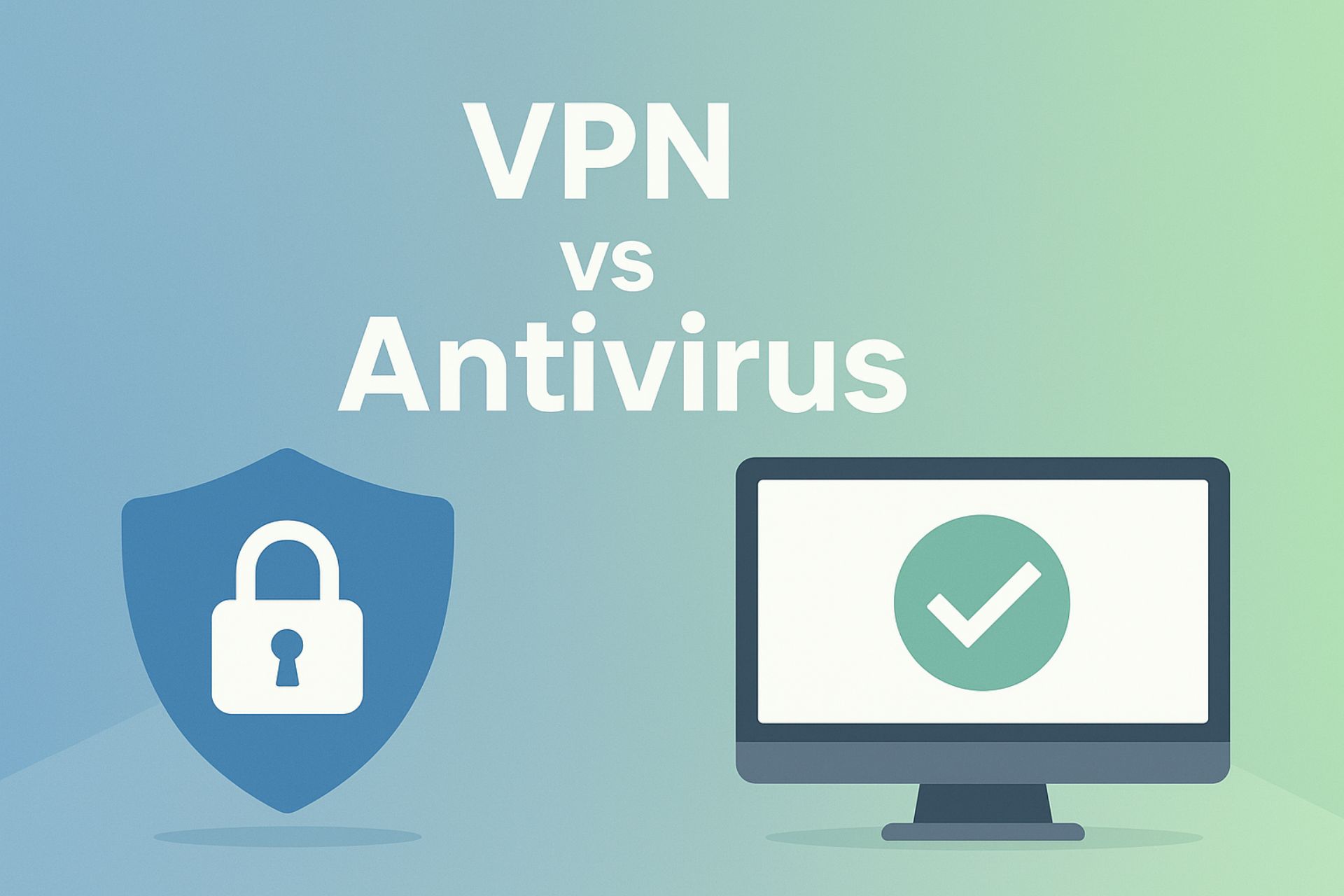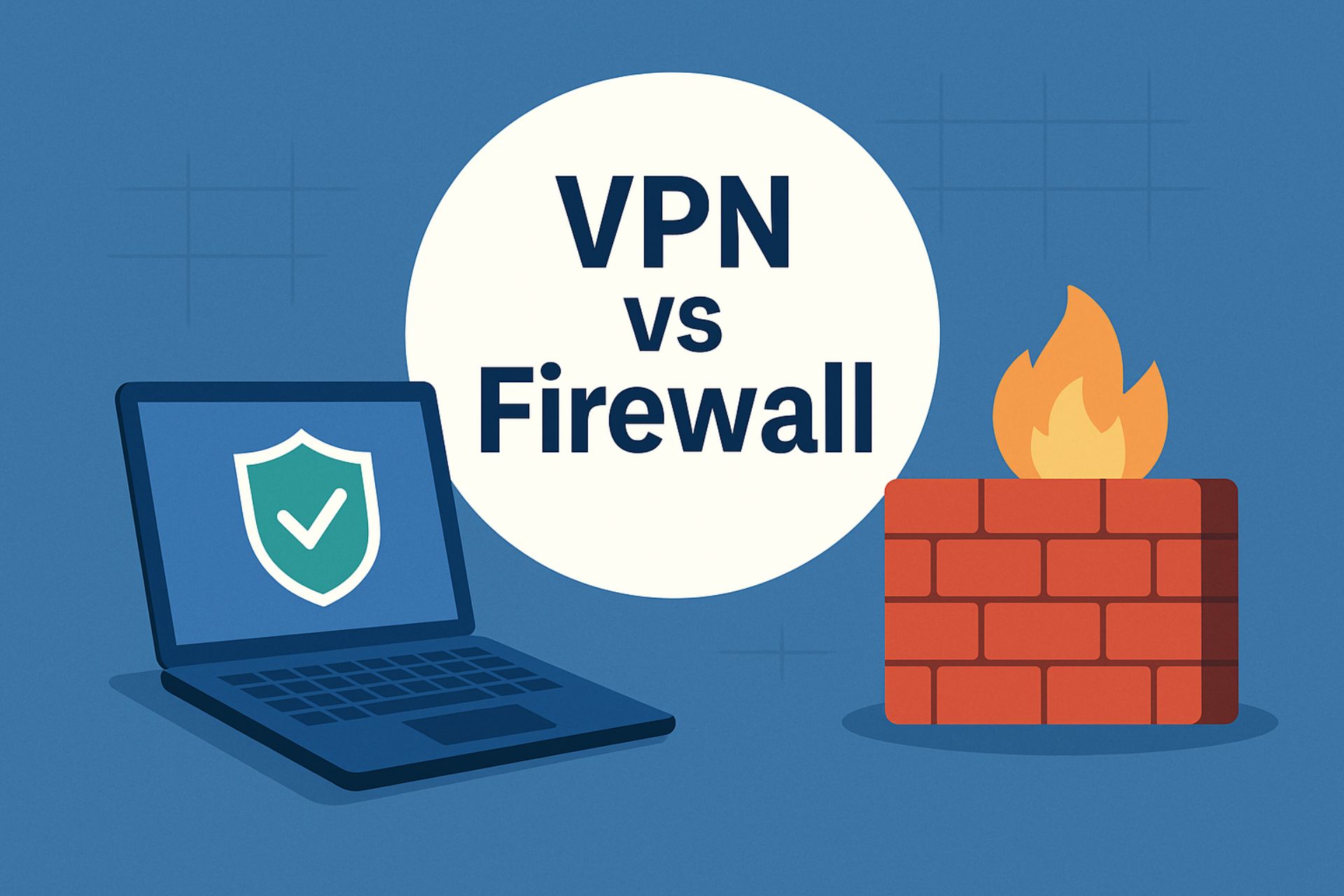WireGuard vs IPSec: Which One Is Better?

VPNs use different protocols to encrypt and tunnel traffic as it travels from and to your device. Two of the best options out there are WireGuard and IPSec. You can’t go wrong with either, but which one is better?
Today, we talk about how these two stack up against each other in our detailed WireGuard vs IPsec comparison. Let’s get started!
What is WireGuard?
WireGuard is a fairly new VPN protocol best known for being unbelievably fast. In addition, its unique combination of agility and ease of deployment separates it from the rest of the pack. It hasn’t dethroned the current VPN standard OpenVPN yet, but it arguably offers the healthiest balance between speed and security.
Here’s what a typical WireGuard connection looks like:
WireGuard uses modern cryptographic solutions like Curve25519 for key exchange, BLAKE2s for hashing, ChaCha20 for encryption, and Poly1305 for data authentication.
Moreover, it uses User Datagram Protocol (UDP) as its transport protocol and moves traffic in a connectionless manner. This way, it eliminates intensive verification to send data as quickly as possible. This unconventional approach leads to lower chances of disconnection and faster recovery in the event of a disconnect.
Thus far, the biggest downside to this protocol is privacy. It can’t manage flows of internet data packets without relying on a table of local static IP addresses. That’s why it can’t always bypass firewalls.
What is IPSec?
IPSec is a suite of encryption and authentication protocols that runs on top of IP. It consists of:
- Internet Key Exchange (IKE) for key exchange
- Encapsulating Security Protocol (ESP) for encryption
- Authentication Header (AH) for sender authentication.
In a nutshell, here’s how IPSec protocols complement each other:
An IPSec connection begins when the two devices negotiate and mutually agree on security association parameters like encryption and authentication. IKE helps IPSec set up keys for locking and unlocking the communications between the sender and the recipient.
AH adds a header to the packet, ensuring that no threat actor modifies its contents while in transit.
Then, ESP scrambles the data. When in IPSec tunnel mode, the protocol cloaks everything. But when in transport mode, it obscures only the packet’s payload and leaves the IP header untouched.
Afterward, the sender transmits the encrypted traffic. At the same time, the receiver calculates the cryptographic hash to determine whether the data came from a legit source.
Finally, an IPSec connection ends when the session times out or the transmission of data completes.
WireGuard vs IPsec
Let’s see how WireGuard and IPSec fare in key areas:
| Speed | Security | Platform availability | Privacy | Ease of use | |
| WireGuard | Faster | Secure | Limited | Depends on the implementation | Generally simple |
| IPSec | Slower, but not much | Secure, but could be hack-prone when implemented poorly | Wide | Depends on the implementation | Can be complicated |
Speed
VPN vendors implement WireGuard and IPSec-based tunneling protocols within the Linux kernel. Compared to their userspace counterparts, they’re considerably fast.
Likewise, they almost always run over UDP. Skipping so many verifications allows them to improve your normal internet connection speeds and reduce latency.
What gives WireGuard the edge over IPSec-based protocols in terms of speed is its cryptography code.
Plus, WireGuard doesn’t need much processing power. It also doesn’t cause device performance issues, slow down other programs, and drain battery life quickly.
The same can’t be said about IPSec, which is notorious for its high CPU usage.
Security
WireGuard is significantly less susceptible to cyber-attacks because of its:
- State-of-the-art cryptographic solutions with secure defaults
- Light code base with no legacy functionality
- Open-source design
- Painless implementation.
In other words, it’s not a chore to audit for vulnerabilities, and it’s less prone to misconfiguration.
In comparison, IPSec has more encryption options, but some of them can be insecure when configured poorly. It also depends on old-school protocols, so its code base could have 100,000 lines. They make it difficult to scour for security bugs and can give hackers more surface to covertly attack. That said, you can make IPSec super secure as long as you know what you’re doing.
Another thing:
This protocol suite’s access range is wide. Granting access to one device in an IPSec-based network may give the other ones the same privileges. Because of this, malware infections could spread like wildfire in the entire network.
Platform availability
WireGuard saw the light of day in 2015. So as of this writing, it’s not even a teenager yet.
Naturally, most VPN vendors have been too skeptical to adopt this rather experimental innovation immediately. Slowly but surely, though, it’s been gaining mainstream acceptance.
What started out as a tunneling protocol for Linux is now cross-platform. So, it’s no longer uncommon to find WireGuard included in VPN clients for Windows, macOS, iOS, and Android. In fact, some of the industry’s most reputable service providers have even used it as the default option.
Another sign that this revolutionary protocol is ready for prime time is the available support for manual WireGuard connections. Many respected VPN vendors have made downloadable and customizable WireGuard configs on tap for certain router brands.
IPSec, on the other hand, has been around since 1995. It’s widely supported on or embedded in major OSes, network routers, and Internet of Things devices.
Privacy
In its unadulterated form, WireGuard’s privacy leaves so much to be desired. It doesn’t offer dynamic IPs or natively neutralize deep packet inspection.
Conversely, IPSec prioritizes confidentiality. It does a great job of protecting data from unauthorized monitoring and tampering.
The problem is that its privacy becomes debatable when integrated with a questionable tunneling protocol. An excellent case in point is Layer 2 Tunneling Protocol (L2TP), which relies on IPSec for encryption. The National Security Agency is one of the co-developers of L2TP/IPSec.
So, there are speculations that it gives the US government a backdoor to eavesdrop on VPN-protected communications.
Ease of use
WireGuard is much easier to deploy than Secure Shell Protocol. So, most IT professionals should be able to set it up on a server without breaking a sweat.
Because it doesn’t perform active connection management, you can expect WireGuard to connect and reconnect fast.
This is a huge plus if you normally roam across networks because you’re regularly on the go. In contrast, IPSec’s implementation can get complex, especially when you need your traffic to bypass firewalls.
Since it actively manages connections, IPSec isn’t exactly agile. Its connection may get stuck when the client and the server can’t communicate for a given period of time. Furthermore, re-establishing it can be time-consuming, which may disrupt your online activity.
IPSec and WireGuard – which one to use?
So, when does it make more sense to use WireGuard instead of IPSec, and vice versa? Have a look at the table below.
| WireGuard | Streaming, gaming, peer-to-peer (P2P) networking, and remote employee access |
| IPSec | Regulatory compliance and legacy tech compatibility |
Overall, WireGuard is suitable for most online activities.
For personal use, you should go with WireGuard to stream, play games, and share files over a P2P network.
For business use, IPSec is the right choice only when you need to use systems or devices that don’t support WireGuard yet. It’s also the better option if you need to adopt older encryption methods. Otherwise, you should implement WireGuard.
Related:
WireGuard vs IPSec – Summary
WireGuard and IPSec are both reliable protocols. Although they’re not without drawbacks, their strengths outnumber their perceived weaknesses. That’s why they’re two of your safest options to mask your traffic and keep snoopers at bay.
Now that you understand the merits of WireGuard vs IPSec, hopefully you’ll make the right call and safeguard your data.
Read our disclosure page to find out how can you help VPNCentral sustain the editorial team Read more






User forum
0 messages